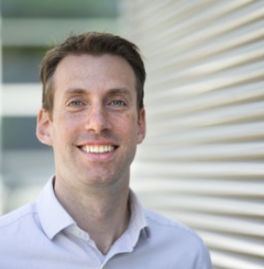
Marvin Tanenbaum received his PhD in 2010 Cum Laude from Utrecht University for his work on cell division in the group of Prof. René Medema. After obtaining his PhD, he was a postdoc in the group of Prof. Ron Vale at UCSF from 2011-2015, where he developed a keen interest in the mechanisms and dynamics of gene expression control. He pioneered several new techniques, including the SunTag system, and contributed to the development of CRISPR activation (CRISPRa), a method to increase expression of endogenous genes. In 2015, he became a group leader at the Hubrecht Institute in the Netherlands and was awarded an ERC Starting grant. In 2017 Marvin was selected as a HHMI International Research Scholar and was also selected as a junior investigator for the new cancer research institute Oncode, which aims to translate basic science findings to clinical use in cancer therapy. In 2018, he received a VIDI award from the Dutch organization for scientific research (NWO). In 2019, he was selected as an EMBO young investigator (EMBO YIP) and was promoted to senior group leader at the Hubrecht Institute. In March 2020 he established and led a consortium to develop and apply new technology for SARS-CoV2 diagnostics in the Netherlands, for which the team was award the Prix Gallien and which is now an important pillar of the national pandemic testing landscape. In 2022, he received an ERC consolidator award, was elected as an EMBO member and became full professor at the department of Bionanoscience at the TU Delft. His research group develops and applies single-molecule microscopy methods to dissect the temporal and spatial control of gene expression. He has pioneered methods to visualize mRNA translation and decay of individual mRNA molecules in real-time in live cells, including the SunTag system and its application to mRNA translating imaging. His group has further developed these technologies to enable single-molecule visualization of viral infection as well. The tools that he has developed have been distributed to thousands of research groups worldwide.
